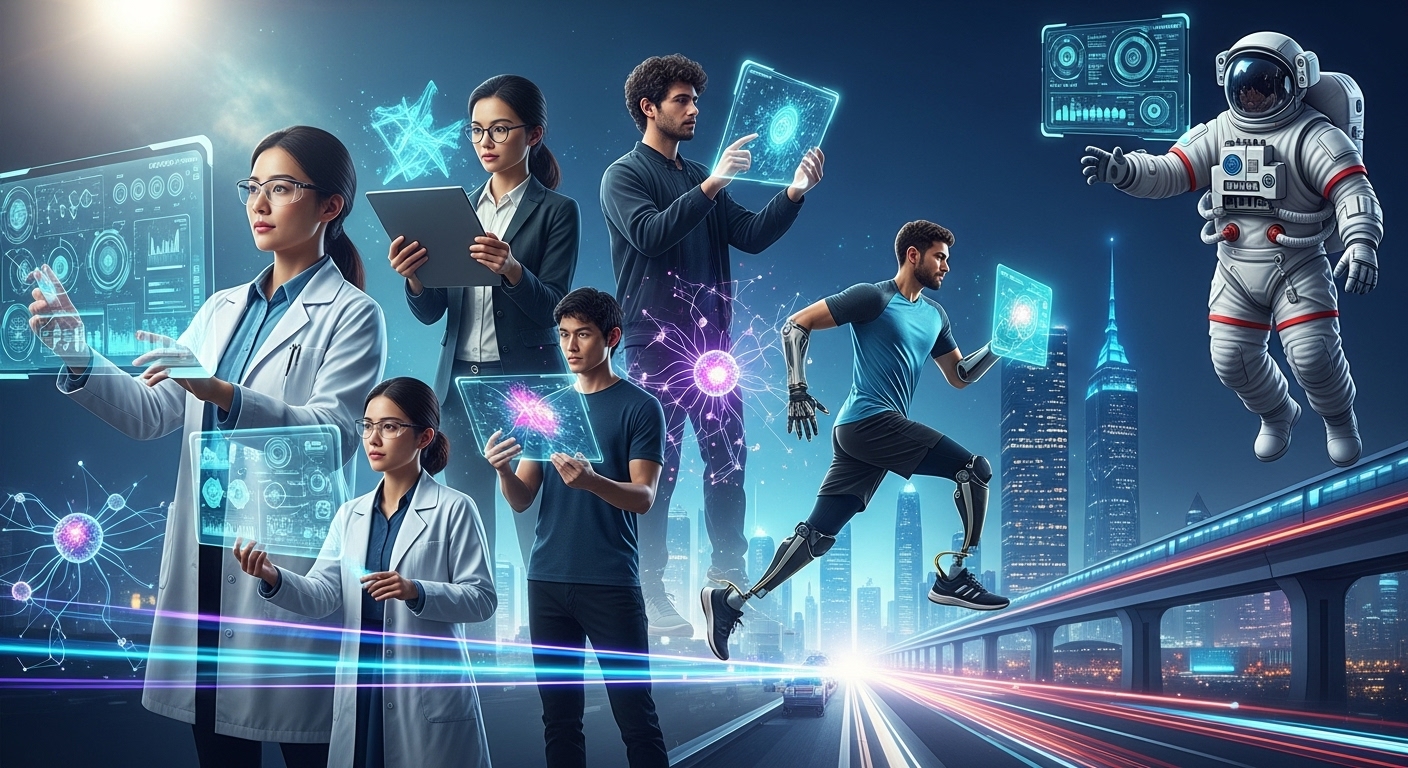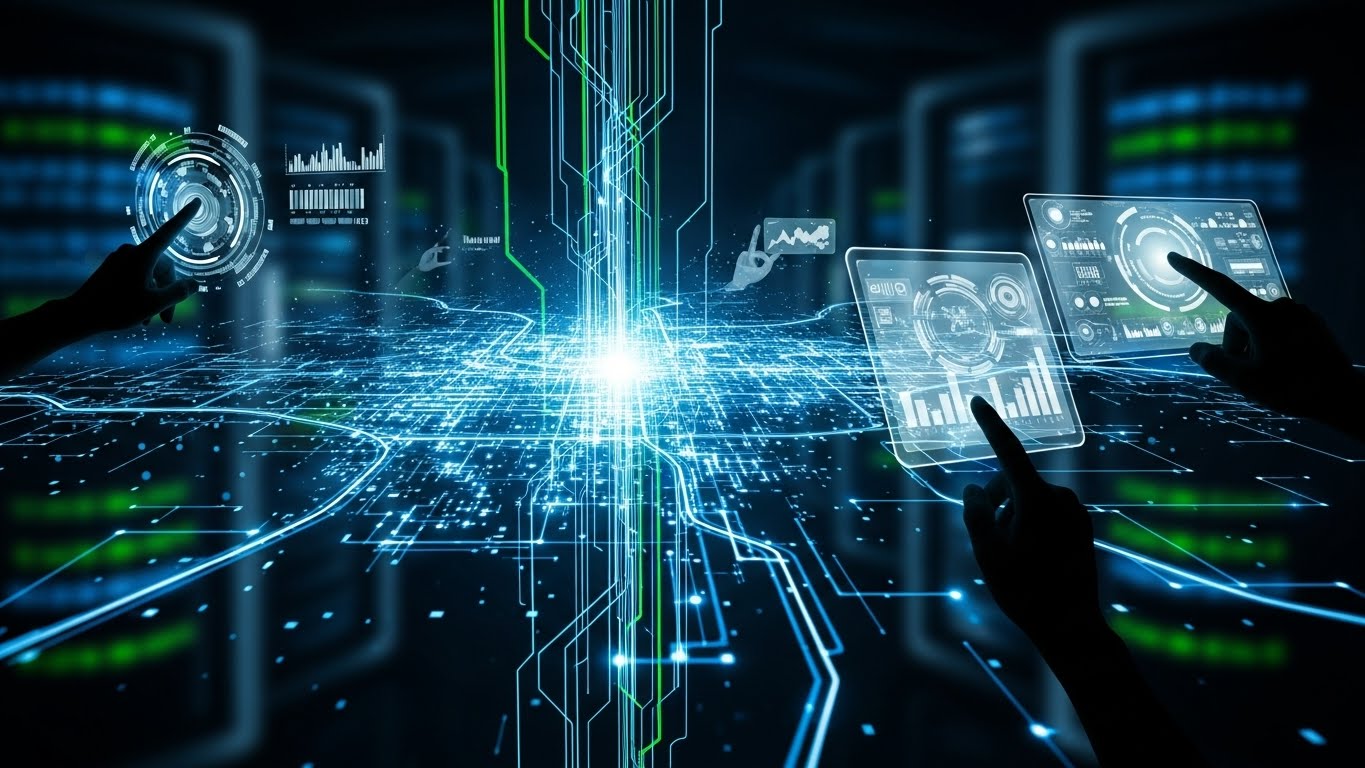Technology is no longer just a tool; it has become an integral part of human existence. From the way we communicate to how we work, travel, and even think, technology influences nearly every aspect of our lives. The rapid evolution of technology has created a world where ideas that were once considered science fiction are now part of our everyday reality. In this blog, we will explore the key areas of technological development, its impact on society, and what the future might hold.
The Rise of Artificial Intelligence
Artificial Intelligence (AI) has transformed the technological landscape in ways unimaginable a few decades ago. AI is no longer confined to science fiction movies; it has real-world applications across industries. From virtual assistants like voice-activated devices to advanced machine learning algorithms that power healthcare diagnostics, AI is reshaping how we interact with technology.
Machine learning, a subset of AI, allows systems to learn from data and improve performance over time. Businesses leverage AI to analyze consumer behavior, automate repetitive tasks, and predict trends. In healthcare, AI algorithms can detect diseases at early stages by analyzing medical images and patient data. Autonomous vehicles are also a product of AI, enabling cars to navigate complex environments with minimal human intervention.
Despite its numerous benefits, AI also poses challenges. Ethical concerns, such as biased algorithms and privacy issues, must be addressed. Moreover, as AI becomes more capable, it raises questions about employment and job displacement, requiring society to rethink workforce strategies.
Cloud Computing: Redefining Data and Storage
Cloud computing has revolutionized how individuals and organizations manage data. The concept of accessing computing resources over the internet rather than relying on local hardware has made technology more flexible and scalable. Companies can now store massive amounts of data on cloud servers, allowing for easy access and collaboration across the globe.
One of the main advantages of cloud computing is its cost efficiency. Organizations no longer need to invest heavily in physical infrastructure, as cloud providers offer scalable solutions based on usage. Services like data storage, software applications, and computing power are accessible on-demand, allowing businesses to adapt quickly to changing needs.
Additionally, cloud computing has paved the way for innovations in other fields such as big data analytics, AI, and the Internet of Things. The ability to process large datasets in real-time enables companies to gain valuable insights and make data-driven decisions. Security remains a concern, but advancements in encryption and access controls have significantly improved cloud safety.
The Internet of Things: Connecting Everything
The Internet of Things (IoT) refers to the network of physical devices connected to the internet, capable of collecting and exchanging data. From smart homes with intelligent thermostats and lighting systems to industrial machines equipped with sensors, IoT is enhancing efficiency and convenience across sectors.
IoT has significant applications in healthcare, where wearable devices monitor vital signs and send real-time data to medical professionals. In agriculture, sensors track soil moisture and crop health, enabling precision farming techniques that maximize yield. Smart cities utilize IoT to optimize traffic flow, reduce energy consumption, and improve public safety.
The growth of IoT has also raised concerns about security and data privacy. As more devices become connected, the risk of cyberattacks increases. Manufacturers and software developers must prioritize robust security measures to protect users from potential vulnerabilities.
5G Technology: The Next Communication Revolution
The arrival of 5G technology promises to redefine connectivity. Unlike previous generations of mobile networks, 5G offers unprecedented speed, low latency, and the ability to connect millions of devices simultaneously. This technological leap enables innovations that were previously impossible with slower networks.
High-speed 5G connectivity allows for the seamless functioning of IoT devices, autonomous vehicles, and augmented reality applications. It also facilitates remote work and virtual collaboration, supporting businesses and individuals in a connected world. For example, telemedicine can benefit from 5G, allowing doctors to conduct remote surgeries and consultations with minimal delays.
While 5G has transformative potential, its rollout faces challenges, including infrastructure costs and regulatory hurdles. Additionally, public concerns about health effects and environmental impact must be addressed through careful planning and transparent communication.
Cybersecurity: Protecting the Digital Realm
As technology becomes more advanced, cybersecurity has emerged as a critical concern. With increasing amounts of sensitive data stored online, the threat of cyberattacks has never been higher. Cybersecurity involves protecting systems, networks, and data from unauthorized access, theft, and damage.
Organizations invest heavily in cybersecurity measures, including firewalls, encryption, and intrusion detection systems. Emerging technologies such as AI and machine learning are also being used to detect and respond to threats in real-time. However, cybercriminals are constantly evolving their methods, making it a continuous battle to stay ahead.
Individuals also play a role in cybersecurity by practicing good digital hygiene. This includes using strong passwords, enabling two-factor authentication, and being cautious about sharing personal information online. As technology becomes more integrated into daily life, cybersecurity awareness is essential for everyone.
Virtual and Augmented Reality: Redefining Experiences
Virtual Reality (VR) and Augmented Reality (AR) are transforming the way we experience digital content. VR immerses users in a fully digital environment, while AR overlays digital elements onto the real world. These technologies are finding applications in gaming, education, healthcare, and more.
In education, AR can enhance learning by bringing abstract concepts to life. Students can interact with 3D models of the human body or explore historical landmarks through immersive experiences. In healthcare, VR is being used for pain management, surgical training, and therapy for mental health conditions.
The entertainment industry has also embraced VR and AR, providing interactive experiences that go beyond traditional media. As hardware becomes more affordable and software more sophisticated, these technologies are likely to become mainstream in everyday life.
Robotics: Machines That Learn and Adapt
Robotics is another area where technology is advancing rapidly. Modern robots are capable of performing complex tasks, from manufacturing and logistics to healthcare and exploration. The integration of AI with robotics allows machines to learn from their environment, adapt to changes, and make autonomous decisions.
Industrial robots have revolutionized manufacturing by increasing efficiency, reducing human error, and improving safety. In healthcare, surgical robots assist doctors in performing precise procedures, minimizing risks and recovery times. Additionally, research robots explore extreme environments, such as deep oceans and outer space, expanding the boundaries of human knowledge.
As robotics continues to evolve, ethical considerations regarding automation and human-robot interaction will become increasingly important. Ensuring that robots complement human work rather than replace it is a key challenge for the future.
Blockchain Technology: Beyond Cryptocurrencies
While blockchain is widely associated with cryptocurrencies, its applications extend far beyond digital money. Blockchain is a decentralized ledger technology that ensures transparency, security, and immutability of data. This makes it valuable for industries such as finance, supply chain management, and healthcare.
In finance, blockchain facilitates faster and more secure transactions without the need for intermediaries. Supply chains use blockchain to track the movement of goods, ensuring authenticity and reducing fraud. Healthcare organizations are exploring blockchain to securely store patient records and enable efficient sharing among providers.
Despite its potential, blockchain faces challenges such as scalability, energy consumption, and regulatory uncertainty. Researchers and developers are actively working on solutions to make the technology more sustainable and widely adoptable.
Quantum Computing: The Next Frontier
Quantum computing represents a paradigm shift in computational power. Unlike classical computers, which use bits to represent data as 0s or 1s, quantum computers use qubits, which can exist in multiple states simultaneously. This allows them to perform complex calculations at speeds unattainable by traditional computers.
Quantum computing has the potential to revolutionize fields such as cryptography, material science, and drug discovery. For instance, it can simulate molecular interactions with unprecedented accuracy, accelerating the development of new medicines. In cryptography, quantum algorithms could break traditional encryption methods, prompting the need for quantum-resistant security protocols.
While practical quantum computers are still in the early stages of development, investments from governments and private companies are rapidly advancing the field. The potential impact on society and industry is enormous, making quantum computing one of the most exciting technological frontiers.
Renewable Energy Technology: Powering the Future
Technology is also driving the transition to sustainable energy solutions. Renewable energy technologies, such as solar, wind, and hydroelectric power, are becoming more efficient and cost-effective. Innovations in energy storage, such as advanced batteries, enable the reliable use of renewable energy even when the sun isn’t shining or the wind isn’t blowing.
Smart grids, powered by AI and IoT, optimize energy distribution, reduce waste, and improve the reliability of electricity supply. Electric vehicles, combined with renewable energy, contribute to reducing carbon emissions and mitigating climate change.
As the world faces environmental challenges, technology plays a crucial role in creating sustainable solutions. Continued innovation in this sector is essential to achieving a greener and more resilient future.
The Ethical Implications of Technology
While technology offers immense benefits, it also raises ethical questions. Issues such as data privacy, AI bias, and automation impact society in profound ways. Responsible innovation requires considering the social, economic, and environmental consequences of technological advancement.
Policymakers, technologists, and society must work together to establish frameworks that ensure technology serves humanity positively. Ethical considerations should be integrated into the design and deployment of new technologies, promoting fairness, transparency, and accountability.
Conclusion: Embracing the Future
The pace of technological advancement is accelerating, bringing both opportunities and challenges. From AI and IoT to quantum computing and renewable energy, technology is reshaping how we live, work, and interact with the world. Embracing innovation while addressing ethical and societal concerns is key to leveraging technology for the greater good.
As we look to the future, one thing is clear: technology will continue to evolve, and our ability to adapt, innovate, and responsibly harness its power will define the next era of human progress.



